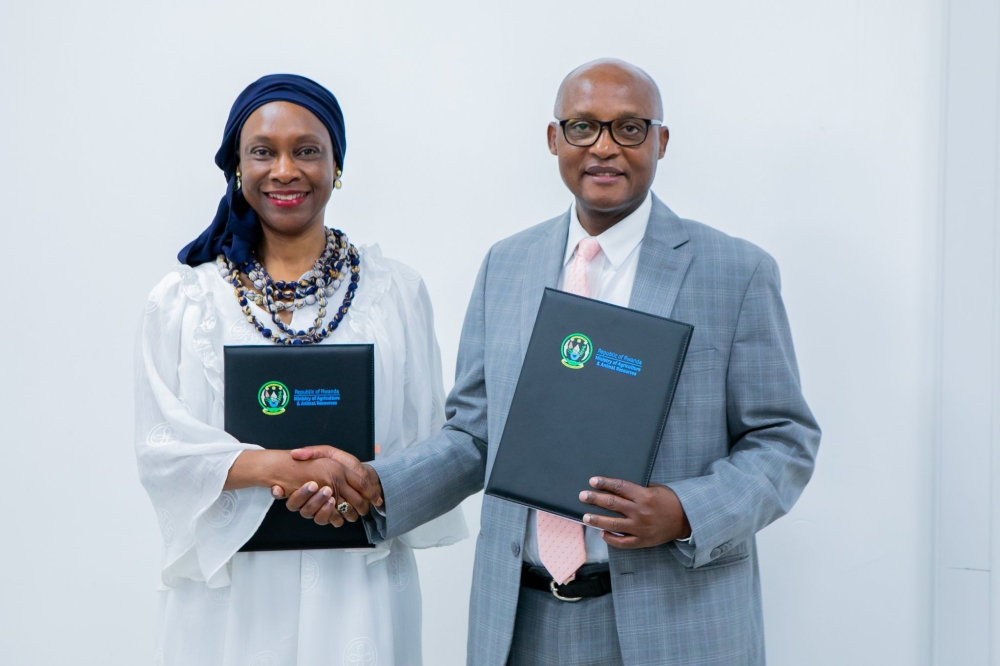I have found Rwanda a nation which genuinely strives for excellence. At 19, for a country whose average age is almost as old as the time since the genocide ended; to be recognised as the safest country in Africa and one of the safest places in the world, marks remarkable progress.


I have found Rwanda a nation which genuinely strives for excellence. At 19, for a country whose average age is almost as old as the time since the genocide ended; to be recognised as the safest country in Africa and one of the safest places in the world, marks remarkable progress. This, as it clocks an average 7% - 8% year-on-year growth in GDP consistently. Today, as part of her vision 2020 plan and eclectic strategies in the Economic Development and Poverty Reduction Strategy – II (EDPRS – II), Rwanda is striving to become a middle income country by the year 2020. Service delivery has assumed an important place in the overall scheme, where widespread recognition of poor customer service as an issue was noted in early 2007. Addressing members of the diplomatic corps on January 23, 2009; President Paul Kagame, noted that a culture of mediocrity manifested in poor service delivery as well as a consumer’s acceptance of substandard services was unacceptable – a clear indication on the importance Rwanda attaches to excellence. Various initiatives have since been adopted to achieve excellence in service delivery in the form of citizen charters, citizen report cards as well setting up of hotlines and other interactive facilities besides commissioning research. A national taskforce of customer care and service delivery team was formed in November 2012 which replaced the technical team constituted in 2009. The Na Yombi campaign, was launched in 2012 aiming at creating awareness and achieve mindset and behavioural change of service providers through mass education and training programs. EDPRS – II promises the establishment of an Institute of Customer Services. There seems to be awareness on the importance of service delivery among providers; something I gather was missing a few years back. Qualitative insights gathered from a recent study commissioned by the Rwanda Development Board however suggest that some loopholes still remain. For instance, the Energy, Water and Sanitation Authority (EWSA) and Rwanda Revenue Authority have made significant additions to their online and mobile services. However, a lot of people continue to be unaware of these services and efforts are being diluted. When a credit request from a bank fails; there are limited avenues for customers to seek a feedback. A lot of international travelers find it difficult to commute in buses or taxi’s because there aren’t any established route maps, bus numbers or boards in English; or standard rate cards for taxis. More than 65% of respondents chose to speak to a supervisor upon receiving a bad service; however majority of the respondents were unaware of a follow up mechanism. Most sectors had a shortfall in the number of customer service representatives – is it a question of numbers or efficiency is something that requires to be studied. Communication in English seemed to be another widespread problem. This points to an immediate need in standardising certain practices - the Na Yombi campaign eliminates this from its current objectives. Standardisation will assist in institutionalising awareness given that there are ready points of reference to fall back on in the quickest time. It will also offer immense convenience to service-receivers and provide with a more tangible understanding of good service delivery. Standardisation may be incorporated at five levels – (i) providing basic information on services in English and Kinyarwanda (ii) identifying ideal customer representative ratio for each sector having considered the various advantages and disadvantages that a sector and Rwanda presents; (iii) category-wise and sector specific problem documentation and resolution mechanism: (iv) a standard mobile training package on English – mobile penetration is higher than internet penetration; (v) performance incentives. There is no doubting the increased awareness on superior service delivery. Efforts to that end must be continued. However, it is important to standardise certain practices for reasons stated above while the iron is still hot. Recently, Rwanda celebrated her customer care week and will host the customer care awards early next year. It is probably the ideal time for Rwanda to take another step towards excellence as it celebrates another year of achievements. The writer is a Senior Consultant, Athena Infonomics, India.




